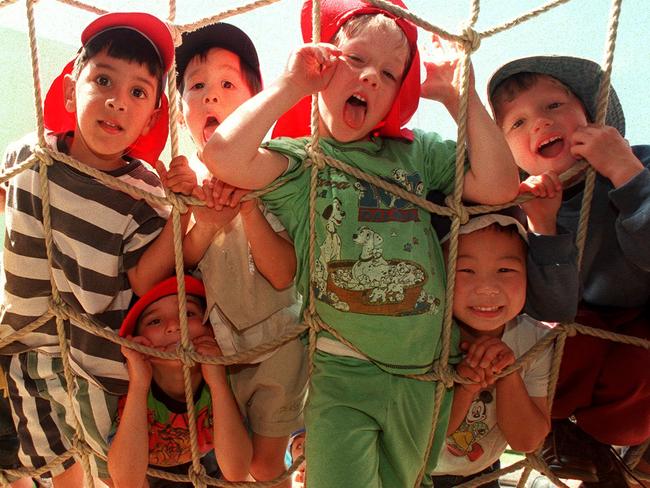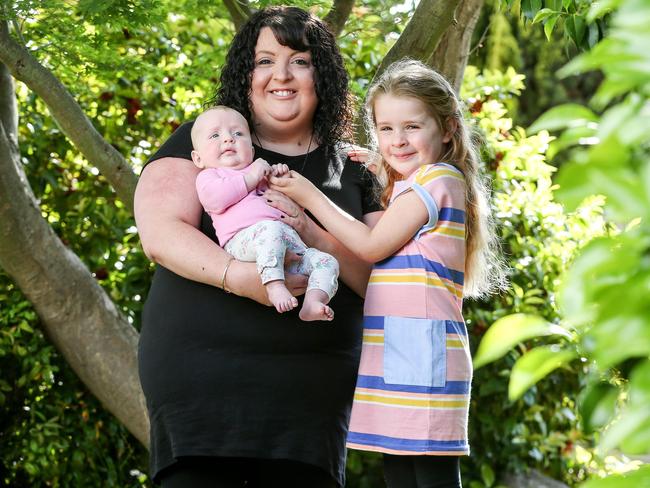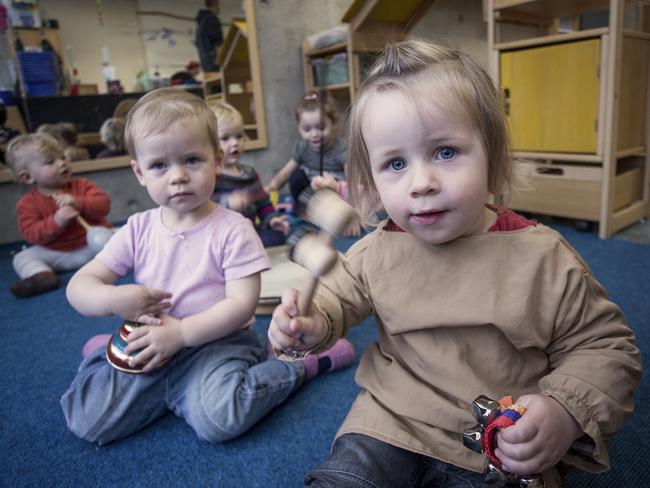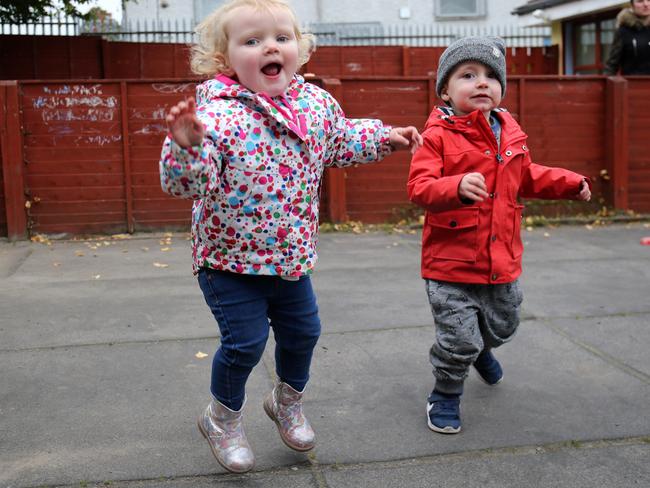Australian childcare fees are among the world’s highest
AUSTRALIAN parents are now being charged some of the highest fees in the world for childcare, raising cost of living pressure.
Kids
Don't miss out on the headlines from Kids. Followed categories will be added to My News.
AUSTRALIAN parents are now being charged some of the highest fees in the world for childcare, raising cost of living pressure.
A special investigation by News Corp Australia spanning several countries has uncovered the harsh financial reality Australian mums and dads face compared to their international counterparts.
In Germany’s capital Berlin, where national legislative changes to provide cheaper childcare occurred in 2007, parents pay a maximum of $7.85 a week — or $1.57 a day — for full-time, five-days-a-week childcare.
TAKE OUR PARENTING SURVEY TO WIN ONE OF FIVE $100 GROCERY VOUCHERS (VIC RESIDENTS ONLY)
This is regardless of parental income or status.
This compares to Australia where fees are up to $200 a day per child or $1000 per child for a full five-day week.
After government subsidies this reduces to $500 a week until the $7613 cap this year exhausts. Next year that cap increases to $10,000.
In the UK fees are also lower than in Australia for parents sending children to full-time childcare.
News Corp Australia met with the OECD in Paris to discuss the situation in Australia and how we can improve.
The OECD’s head of early childhood education research Eric Charbonnier said the cost to Australian parents was shocking and was holding Australia back from being the world leader in childcare.

He said the proportion of household expenditure on childcare in Australia was the highest in the world.
“If you look at fees and private expenditure Australia is really the country with the highest level of private expenditure,” Mr Charbonnier said.
“When you factor in public support to family (government subsidies) the picture is less negative when looking at only private expenditure but Australia is still one of the most expensive countries in the world.”
“The cost is particularly difficult for middle class families.”

Mr Charbonnier said by all other standards Australia has an exemplary early learning system with a national quality framework, but suggested one way to fix the disparity in cost to parents was to remove funds from other educational areas.
“Lot of countries in the past have decided to invest a lot into secondary education and university and invest less in the first ages and now there is a need to reallocate part of the money.”
News Corp Australia can also reveal a survey of 1515 Australians aged 18 years and older as part of the What’s the Future series many government has more of a role to play in bringing down childcare costs.
While 38 per cent of those surveyed blame the childcare centres themselves for rising costs, 32 per cent lay the blame with the federal government and 17 per cent blame state
governments.
A total of 54 per cent of those surveyed think more government funded centres should be opened to help reduce the pinch on parents.
Early Childhood Australia chief executive Samantha Page said the cost to parents for childcare was too high.
“Affordability is a major problem for parents and there is genuine public interest in reducing that,” Ms Page said.

Goodstart Early Learning advocacy manager John Cherry said Australian investment in supporting early learning was well below the OECD average.
“This leaves parents carrying one of the heaviest out of pocket costs of any advanced country,” Mr Cherry said.
“Many countries are increasing their investment in early learning because of the significant benefits to children’s education and life outcomes that it provides. Australia has a lot of catching up to do.”
Education Minister Simon Birmingham said it was not fair to compare raw Australian childcare fees with other countries.
Senator Birmingham said Australian parents were paying 15.7 per cent of their household income on childcare costs — just above the OECD average of 12.6 per cent.
“Families are feeling the pinch but the data shows child care in Australia is more affordable than the US, UK, New Zealand, Canada and Ireland and our reforms will put more money in the pockets of parents,” Minister Birmingham said.
“While we have reduced the increases in child care costs for Australian families as much as possible within the current system, we need to go further. Our reforms will help fix the broken child care system with a complete overhaul.”

AUSTRALIA
Cost at a $180 a day (some centres in inner metro areas charge up to $200) long daycare centre: (5 days a week for 52 weeks a year = 260 days) = $46,800 a year ($52,000 if paying $200)
$150 a day = $39,000
After government subsidy of $7613 in 2017/18 financial year = $39,187 ($44,387)
$150 a day = $31,387
After government subsidy of $10,000 for families earning a combined income of $185,000 beginning 2018/19 financial year = $36,800 ($42,000)
$150 a day = $29,000
After government subsidy for families earning less than $185,000: $23,400 ($26,000).
15 hours of free preschool is not accessible until the age of 4 (or the year the child turns 4) and is not a guaranteed right for every child due to availability.
The average Australian wage, including bonuses is around $82,000 meaning dual income families only have to earn $10,500 above the average wage to reach the $185,000 cap.

GERMANY
Cost and government subsidy varies per state.
In the cheapest state, Berlin parents pay a maximum of 23 euros ($A34) per month for five days a week full long-day childcare from the age of 1.
This fee is only to cover food (which is all meals throughout the day and a hot lunch) and = $408 a year.
In the most expensive state, Schleswig-Holstein parents pay a maximum of €250 ($A383) = $4596 a year.
ENGLAND, SCOTLAND, WALES
In Inner London where childcare is the most expensive across the UK: £290.73 ($A500.53) per week = $26,027.56 a year.
Some children from the age of 2 and all children from the age of 3 get access to 15-30 hours of free early childhood education.

IRELAND
In Ireland’s capital Dublin the most a parent pays for childcare is €185 ($A283.66) a week = $14,750.32 a year.
The least a parent pays after government subsidies is €60 ($A90) a week = $4784 a year.
NUMBERS BASED ON A CHILD ATTENDING 5 DAYS A WEEK
Originally published as Australian childcare fees are among the world’s highest


